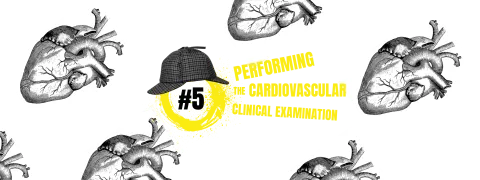
Mrs Toomes : Good morning, Doctor, thank you for seeing me so soon. I’m feeling really unwell. It started with diarrhoea, so I thought I’d eaten something a bit off, and then my hands started to tremble. And I’m worn out all the time, though that could be because I’m on the go from morning to night. My husband tells me to sit down and relax, but there’s so much to do.
Dr Dowbase : I see,
Mrs Toomes, and do you still suffer from diarrhoea ?
Mrs Toomes : Yes, it’s very embarrassing; I get these sudden urges to go to the loo.
Dr Dowbase : And have you lost weight ?
Mrs Toomes : Yes ! That’s the strange thing. I’m eating as much as usual, but I’m losing weight. My husband’s very happy, because I’ve always been a bit, you know, chubby, and I put on quite a few pounds when I was expecting little Emma. I lost a little bit just after she was born, of course, but over the last few weeks, the weight seems to be falling off.
Dr Dowbase : And how old is Emma now?
Mrs Toomes : She’s just turned six months.
Dr Dowbase : So your problems started soon after her birth ?
Mrs Toomes : Yes, that’s right. At first, I thought it was an after-effect of the pregnancy or the labour, or maybe related to the breast-feeding, but it’s just getting worse and worse and I’m just so tired all the time.
Dr Dowbase : Have you noticed any other symptoms?
Mrs Toomes : Now you mention it, yes. I’ve not been sleeping very well and I feel hot and sweaty. As I said, my husband keeps telling me to calm down, because I can’t keep still and because I seem to get upset or a bit shirty more often. I thought it was baby blues, but I didn’t have any problems like this with the first two.
Dr Dowbase : And have you noticed any changes in your periods?
Mrs Toomes : Well, I’ve only had three since Emma was born, but there was nothing unusual.
Dr Dowbase : What about your heart? Have you noticed any irregularities in your heart beat?
Mrs Toomes : Well I do have the occasional bout of flutter, but it’s just like butterflies in the stomach before an exam or something.
Dr Dowbase : Tell me,
Mrs Toomes, are you taking any medication at the moment?
Mrs Toomes : No, nothing. I try to avoid any type of medication or dietary supplements and stuff like that if I can.
Dr Dowbase : Right,
Mrs Toomes, I’d like to examine you if I may.
Mrs Toomes : Yes, of course. Go ahead.
Dr Dowbase : Hmm, your thyroid is a little bit swollen and your pulse and blood pressure are a bit high. Has anyone in your family ever suffered from thyroid problems?
Mrs Toomes : Well, I have an aunt on my mum’s side who had an operation on her thyroid, but I can’t remember why, I’m afraid.
Dr Dowbase : And when was that?
Mrs Toomes : It was quite a while ago. When I was at university, I think. But she’s as fit as a fiddle today and a very active lady.
Dr Dowbase : I think that you may have a hyperactive thyroid,
Mrs Toomes. It’s nothing to worry about. It’s a fairly frequent condition and we can treat it very effectively, but first I’d like you to do some blood tests to make sure. You know, to check your thyroid hormone levels, and after that, we may need to do some further blood tests and an imaging examination, but we can talk about that next time we meet. It could be Graves’ disease, but it could be something else. These tests will give us the information we need. I’ll give you a prescription and if you could get it done this week we can start to look at treatment options.
Mrs Toomes : Thank you, Doctor. I’ll do it first thing tomorrow morning.
Dr Dowbase : Good! Well I’ll be seeing you again as soon as we’ve got the results.
EXERCISE :
| FIND IN THE TEXT A WORD OR EXPRESSION (IN BOLD) EQUIVALENT TO THE WORDS OR EXPRESSIONS BELOW: 1. apprehensions 2. complementary 3. concentrations 4. delivery process 5. efficaciously 6. enlarged 7. fat 8. gained 9. gravidity 10. I’m busy 11. in perfect condition 12. irritable 13. menstruation 14. palpitations 15. pregnant with 16. products 17. quite 18. remarked 19. sick 20. stop moving 21. strong desires 22. suckling 23. tells me continually 24. that had gone bad 25. toilet 26. toxic diffuse goiter 27. very tired |
| Translate the following eponymous diseases into English . 1. butterflies in the stomach (= avoir le trac) 2. further (= complémentaires) 3. levels (= taux, dosages) 4. labour (= travail) 5. effectively (= efficacement) 6. swollen (= grosse, hypertrophiée) 7. chubby (= potelée) 8. put on (= prendre) 9. pregnancy (= grossesse) 10. I’m on the go (= je n’arrête pas) 11. fit as a fiddle (= se porter comme un charme) 12. shirty (= de mauvais poil) 13. periods (= règles) 14. a bout of flutter (= palpitations) 15. expecting (= attendre) 16. stuff (= trucs, choses) 17. fairly (= assez) 18. noticed (= remarqué) 19. unwell (= pas bien, mal) 20. keep still (= rester tranquille) 21. urges (= fortes envies, besoins impérieux) |
JEAN-PIERRE CHARPY, PHILIP BASTABLE, DIDIER CARNET













